Journeys and Jottings
People Make Places - Issue 38
Word of the Day - Vive la vida al máximo . In Spanish, it means living life to the fullest, and Salud to that attitude in life .
And on that note, hola and welcome to this issue of Journeys and Jottings. I have just returned from a whirlwind trip to Ibiza in Spain and I was so smitten by the vibe. American Writer, Rita Mae Brown says, “ Language is the road map of a culture, “ and I must say Spanish has always fascinated me. A little deep dive into some of the Spanish sayings and the world they open into.
It’s also the Navaratri season and if you have read any of my previous issues, you will read about my childhood fascination for Golu. I stumbled upon a story that I had written for Yahoo Travel (which has been shut down) exactly ten years ago. I remember going with my mother for Golu shopping that year as it was a regular ritual for us. I felt so nostalgic reading it and wanted to share it here. I am keeping the Golu after two years and it’s the first time after my mother passed away. And in a way, it’s like a little tribute to her – for all those years of inspiring me with stories, buying dolls for me, and for instilling the passion for heritage and culture, arts and crafts, and spiritual traditions.
In People Make Places, we meet Manisha Pande, who talks to us about her award winning social enterprise Village Ways that she runs with her husband Himanshu. I travelled with Manisha to Madhya Pradesh last month as she was representing ICRT India of which she was the founder member, along with Dr Harold Goodwin and other ICRT members from around the world.
Spanish Diaries - A Happy Place called Ibiza
My guide Carlos Espin would greet us saying “ Let’s start the day with something beautiful” and he would show us some of the most beautiful, pristine views of scenic landscapes as we soaked in the island way of life. I really liked the thought behind it. We talk about starting our day on a positive note always, but adding a touch of beauty is just sublime.
I was in Ibiza or Eivissa as it’s called in Catalan for a week and we explored some of the cultural and historic facets of the island, including the ancient Old Town and Necropolis, besides of course beach hopping as well.
Carlos was always happy and smiling and laughing and when I told him that his laughter was infectious, he told me that “ Life always gives us opportunities to be happy” or as they say in Spanish, “La vida siempre nos da oportunidades para ser felices.”
One of the most famous Spanish sayings is uno siempre vuelve a los lugares donde amó a la vida. The literal meaning of this quote is ‘Everybody comes back to the places where he or she loved life’. In a way, I felt like that in Ibiza. A happy place for everyone. whether you are partying or sunbathing on a beach or walking around charming villages, or binging on food and wine.
There is a certain allure around the Mediterranean. The azure blues of oceans set against the pearl white facades of medieval churches, quaint little towns with cobbled streets, plenty of olives and tomatoes, sunsets and sangrias - It’s been a bit of a whirlwind of a trip in Ibiza, in Spain but it’s left me wanting only more.
100 Stories from India - A Navaratri Golu special
Kaushik is a very busy man. He is attending to at least six customers who are peering over his modest collection of clay dolls that he has brought all the way from Bengal. There is no power in North Mada Street in Mylapore in Chennai, but that does not deter the truckloads of people from buying these colourful dolls or Navaratri Golu bommais as they are referred to in Tamil. The entire street has turned into a mini exhibition as each vendor is displaying his ware.
These are stories from Indian mythology, epics, and from the lives of Gods and Goddesses. The deities are getting married or are in a war scene. Kaushik speaks to me in Hindi and then he switches over to colloquial Tamil and barks orders in Bengali to his boys to pack the dolls in a carton. I ask him why he is in Chennai at the time of Durga Puja and he says that this Navaratri is the time to be in the South with all the sales and exhibitions going on. He is a craftsman himself but prefers to be called a businessman. He has rented a part of an existing shop and uses their credit card machinery. His Tamil is rather fluent as he rattles out places in Chennai and Bangalore where he has supplied his crafts.
I move on with four cartons of dolls, made of clay. It is a Krishna theme this year and I have just picked up some miniatures. My fascination with Golu started when I was a child when I looked at dolls as a way of storytelling through art. They transported me into a land of legends and myths, where Rama would go boating with Guhan or Krishna would kill Kamsa. I grew up creating parks and zoos and village scenes, while the elders would arrange the dolls. Today, as I celebrate the festival, it is my way of connecting back to my childhood, when my fascination with Indian mythology started.
People Make Places
I “emet” Manisha Pande first through social media and various online groups, including WICCI Rural Tourism Council, where we are both members. But we met actually only during the recent trip in Madhya Pradesh and we discussed several initiatives from women in tourism to rural and responsible tourism. Manisha Pande, along wih her husband manage the award winning organisation, Village Ways, a social enterprise that focusses on community tourism , rural livelihoods and meaningful and mindful travels in rural India and she is also the founder member of ICRT India . Manisha was recently felicitated by the Maharashtra Goverment in the presence of the Tourism Minister , for the many awards Village Ways won in the Global Responsible Tourism Awards at WTM London in 2021. At World Travel Market Responsible Tourism Village Ways won Gold India and Gold Global Awards for Growing the local Economic Benefit. We had a brief chat and here are some of the snippets from the conversation.
How did the journey begin for you ?
Spending early years of my life in different parts of the country, I was privileged to have a closer glimpse of the rich cultural and traditional life in different states. I thank my father for this and for the way he and my mother raised me and my sister, to be independent and free to express our opinions, as this paved way for being open to explore and learn through experiences.
After marriage, I moved to our native state of the Himalayan state of Uttarakhand and joined my husband in running a small hotel in the Binsar Wildlife Sanctuary. From here the story of Village Ways started in 2004.
What was the inspiration behind Village Ways ?
Village Ways was formed initially to tackle the rural livelihood and out-migration problems in the five villages of the Binsar Sanctuary. Together with our friends from UK and India, with our own resources pooled in, we were able to establish a community owned and run guest house, one in each of the five villages. We also provided necessary training to the community to successfully run these small businesses, enabling them to develop an alternative income stream. The marketing efforts were started by our colleagues in the UK and we opened for guests in October 2006.
From these beginnings, Village Ways has expanded to other regions and is now working in 28 villages across India and Nepal. It has emerged as a social enterprise with the specific aim to promote rural livelihoods through community tourism, with the belief that the business of tourism strongly benefits from being driven by entrepreneurial involvement at all levels, starting from the community.
People Make Places . Please share inspiring and positive stories and people you have met on your journeys
Since the beginning of our work, we have observed various positive impacts that Responsible Tourism can bring to an area and we have stressed on monitoring and recording these impacts.
There are several anecdotes which are hugely motivating for us.
1. In Binsar Sanctuary, one of our guides said in a meeting, ‘earlier when we were children, we used to throw stones at birds and now, after being trained and working as a guide, we open a book to identify which bird it is’’.
This is a very beautiful example of how tourism can help change people’s attitudes towards the environment.
2. An example of the women committee in our Kerala Project in Wayanad, who do everything themselves right from running the committee, as guides, as cooks, looking after accounts to everything. And they also started their own female drumming group, the first in the region, as drumming was mainly done by men. Today they perform even in temples and are also invited out of state.
A nice example of women empowerment through tourism.
3. In Madhya Pradesh, we work with a village with no literacy. In this village, we started training local guides and initially sent another specialist guide along with the local guide to accompany our guests, as we thought they would face difficulties in language. After a few years, we received feedback from a guest, that their local guide is now very capable to accompany guests independently as they were very impressed with how he narrated the story of Ramayana to them in English and the way he looked after them.
An example of ‘Building the confidence and skills of local people and rebuilding the pride in their heritage.
How challenging is it to work at the grassroots, especially on community based tourism initiatives.
Since we engage the entire village in our concept of community based tourism, we do have different challenges from time to time at the grassroot level. What helps us most, are the transparent systems created for discussions and regular contact with our community team members , through our appointed regional coordinators in each region. This helps to address issues at the right time and decisions are taken democratically.
Tell us more about your work in ICRT in India and in MP and Kerala
Since the start of Village Ways, we adopted the policy of Responsible Tourism and received regular guidance from Dr Harold Goodwin, Founder of ICRT (International Centre for Responsible Tourism). Through this initial involvement, I got to know more about the work of the ICRT globally.
I am so pleased that India is now being recognised as a leading country working towards Responsible Tourism. Kerala pioneered this work as the first state government to take up these initiatives under the Responsible Tourism Mission. This was followed by Madhya Pradesh State Tourism Board. Apart from State governments, there are many examples of practitioners/ companies, NGOs, who are contributing to expanding the reach of Responsible Tourism.
ICRT India was founded in year 2017 and I am one of the Founding members along with others who have and are playing an important role to make this a movement. Both states of Kerala and MP are very important centres of RT and therefore ICRT India Foundation, is closely working them to expand the reach to other states with help from the experiences of these two states.
The trip to Madhya Pradesh has been inspiring and so heartwarming. How What are your thoughts on the Responsible Tourism initiatives that have been initiated ?
Madhya Pradesh is blessed with many natural, cultural, traditional and historical aspects. To preserve this heritage , Madhya Pradesh tourism board has started the Responsible Tourism mission and is working on various aspects to benefit local communities through their projects. I thought that the exposure visit which we took, was very insightful and it was wonderful to see how these projects are being successfully implemented through the various project support organisations. engaged by the state tourism board.
Women empowerment plays a key role in community tourism initiatives and your thoughts on how it plays a huge role in responsible travel
The below example would explain the answer to women's empowerment through Tourism in destinations.
Participation of women in Tourism is very important not only because they have the natural talent and skills, but also because they are at the centre for preserving and passing on the rich traditions and culture from generation to generation. They can be a big force for implementing ideas that are positive for their regions as a whole and therefore they have an important role in Responsible Tourism.
As travellers, women can play an important role in supporting the women workforce in destinations and always have a better understanding of the
Pooja Joshi, from Dalar Village, talks about her time as a porter with Village Ways
"I have been a porter and a committee member in the Binsar Wildlife Sanctuary in the Himalayas with Village Ways for ten years. Guests come to walk, learn about local life and see the leopards, langur monkeys, and porcupines. There are beautiful rhododendron, pine, and oak forests, and we can see the peaks of Nanda Devi and Trisul. Before I worked as a porter, carrying guests' luggage from one village to another, I was looking after my house and had never visited neighbouring communities. Meeting them has brought us closer and given us strength. Women aren't usually porters, but my mother-in-law encouraged me to do it , as she was also involved in the village committee started by Village Ways. Earning an income has given me independence. I've learned a lot too, and I can pass that knowledge on to my two children. This region is hilly, but I'm used to the trails - all women from the villages collect grass for our livestock and dry wood from the forests each day. The participation of women in tourism has given us a different status; our opinions are valued. male and female porters are paid the same and the maximum weight for everyone is 15kg. And I'm not sure if I should say this, but I think female porters handle guests' bags more carefully."
You can read more about Village Ways on their website and instagram
Feedback
I do hope that you enjoyed reading this issue. Looking forward to your feedback as always. We are going to keep the flow of conversations going and I would really appreciate it if you will share my newsletter with your friends and family.
See you soon! You can also read my travel stories on my blog and follow me on my social media.
Blog - www.lakshmisharath.com
Twitter - www.twitter.com/lakshmisharath
Facebook - www.facebook.com/travelwithlakshmi
Instagram - www.instagram.com/lakshmisharath

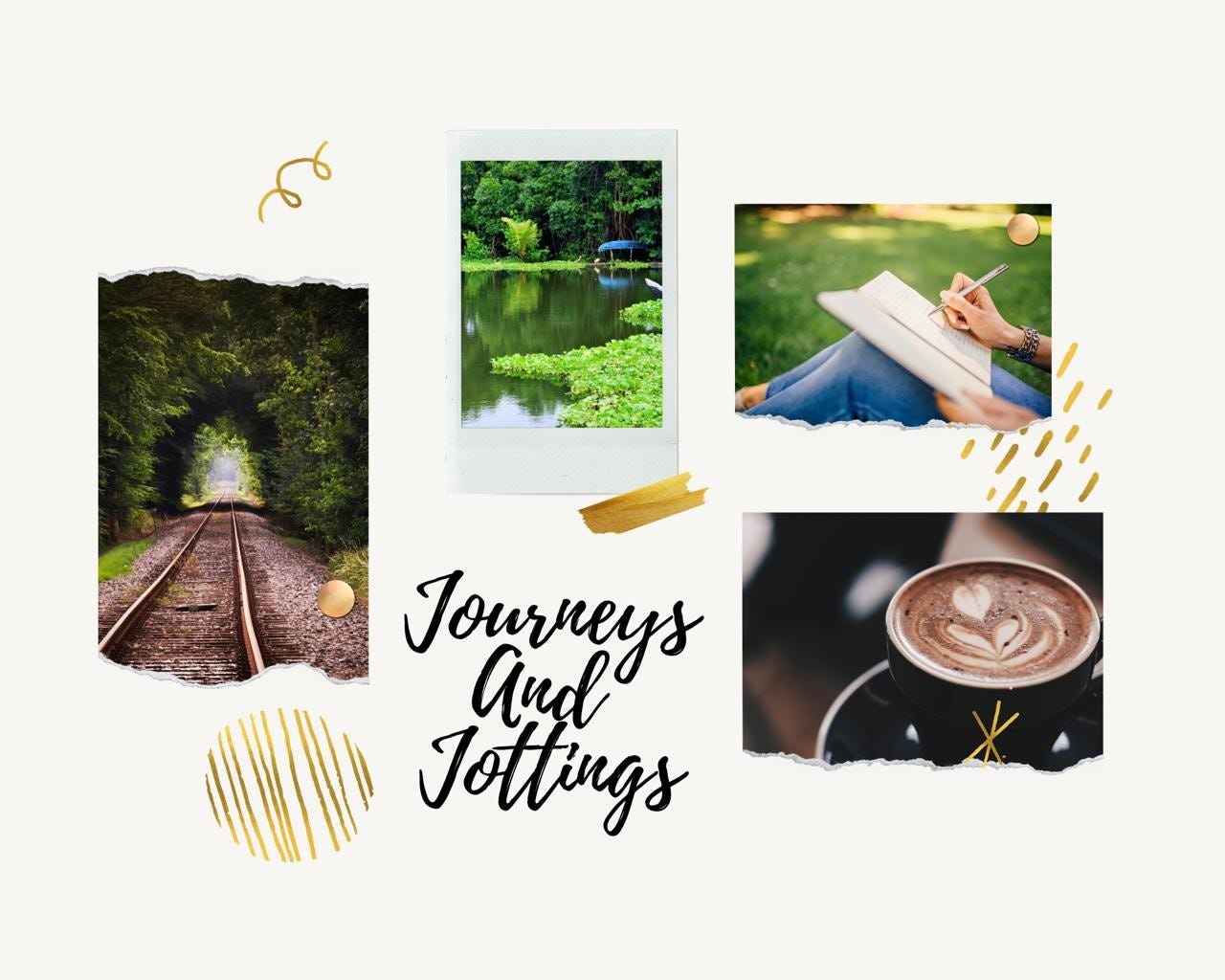
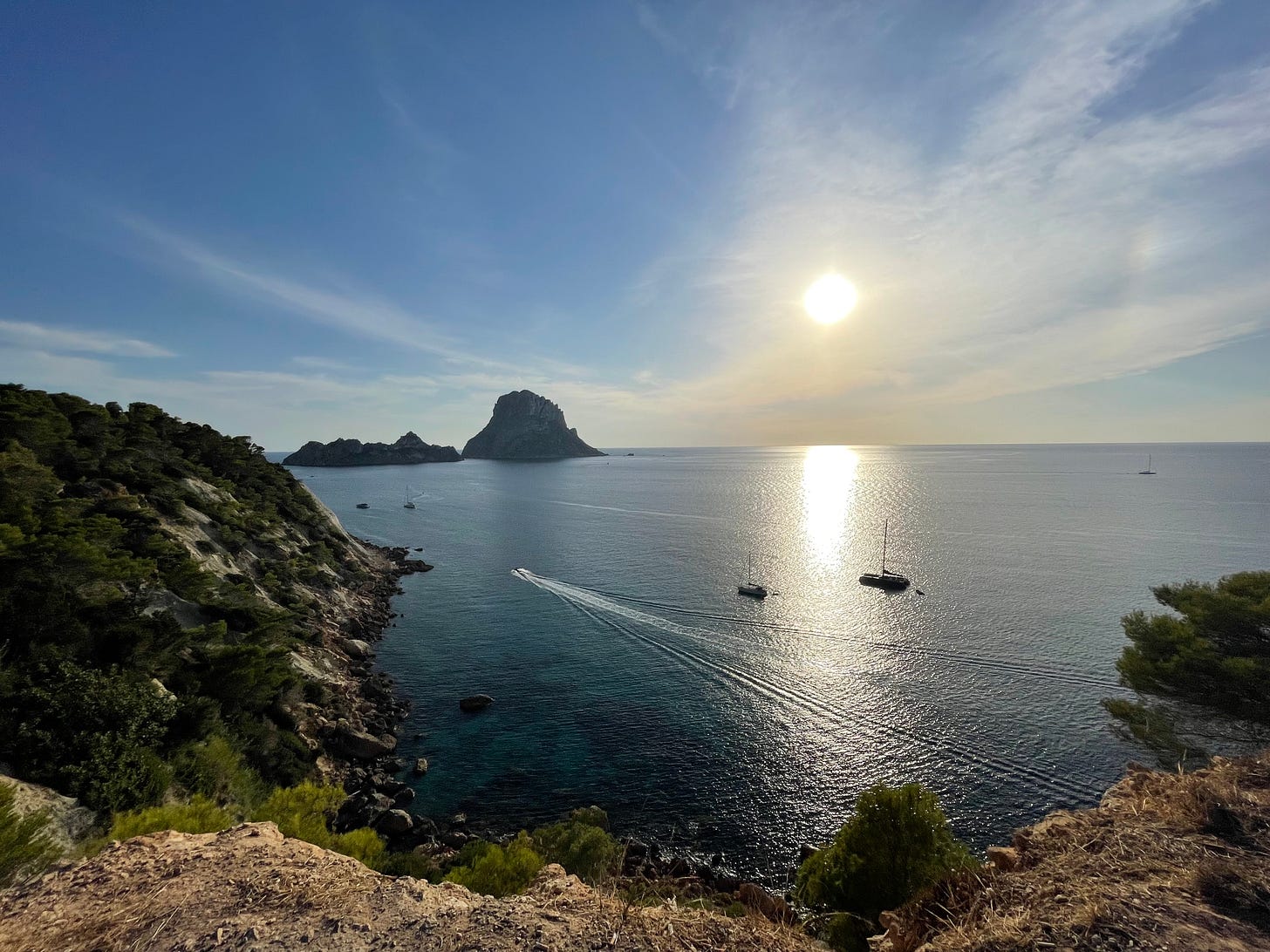

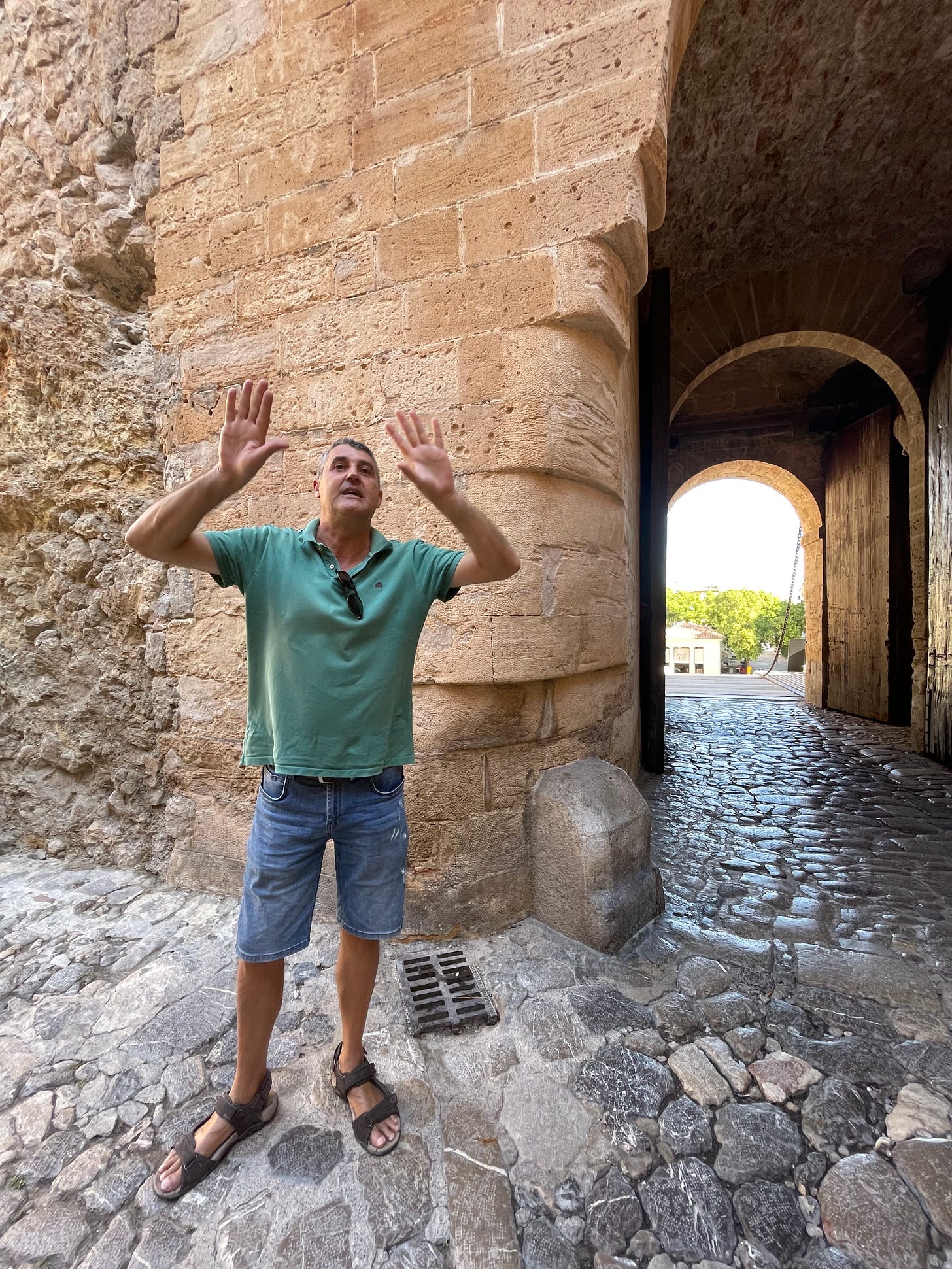
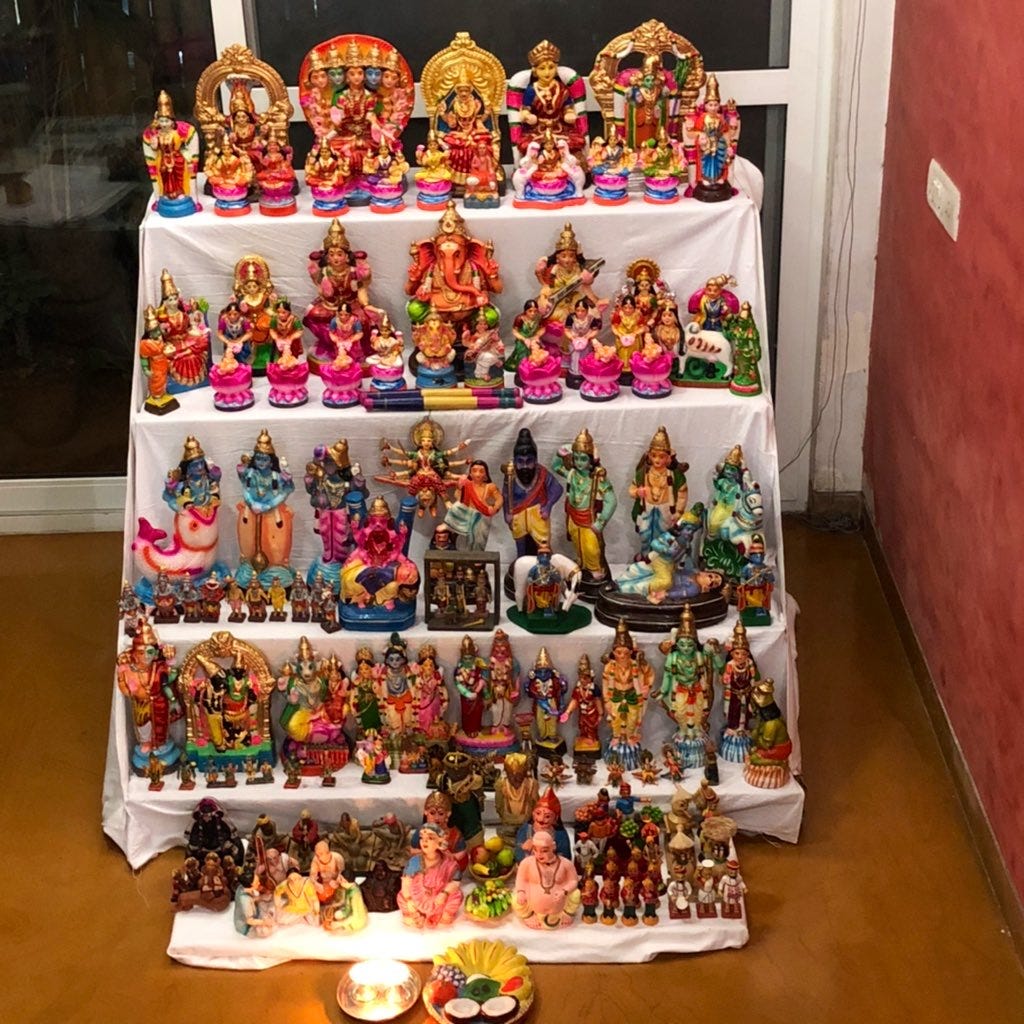
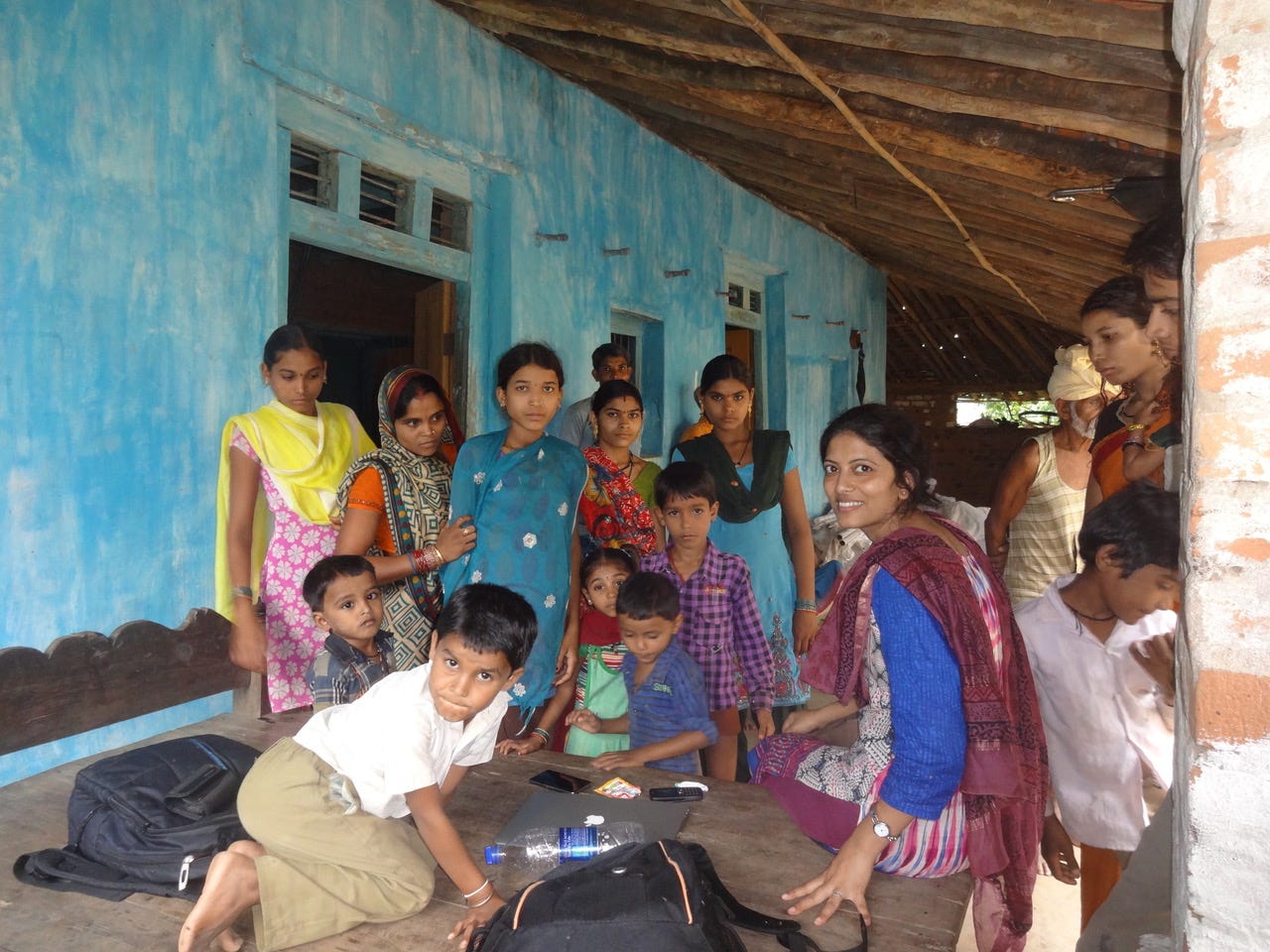
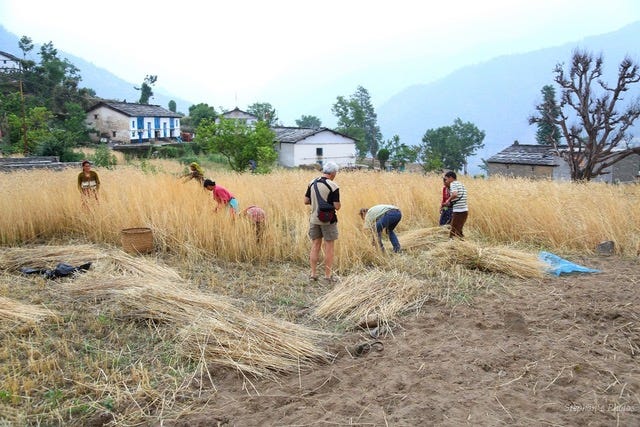
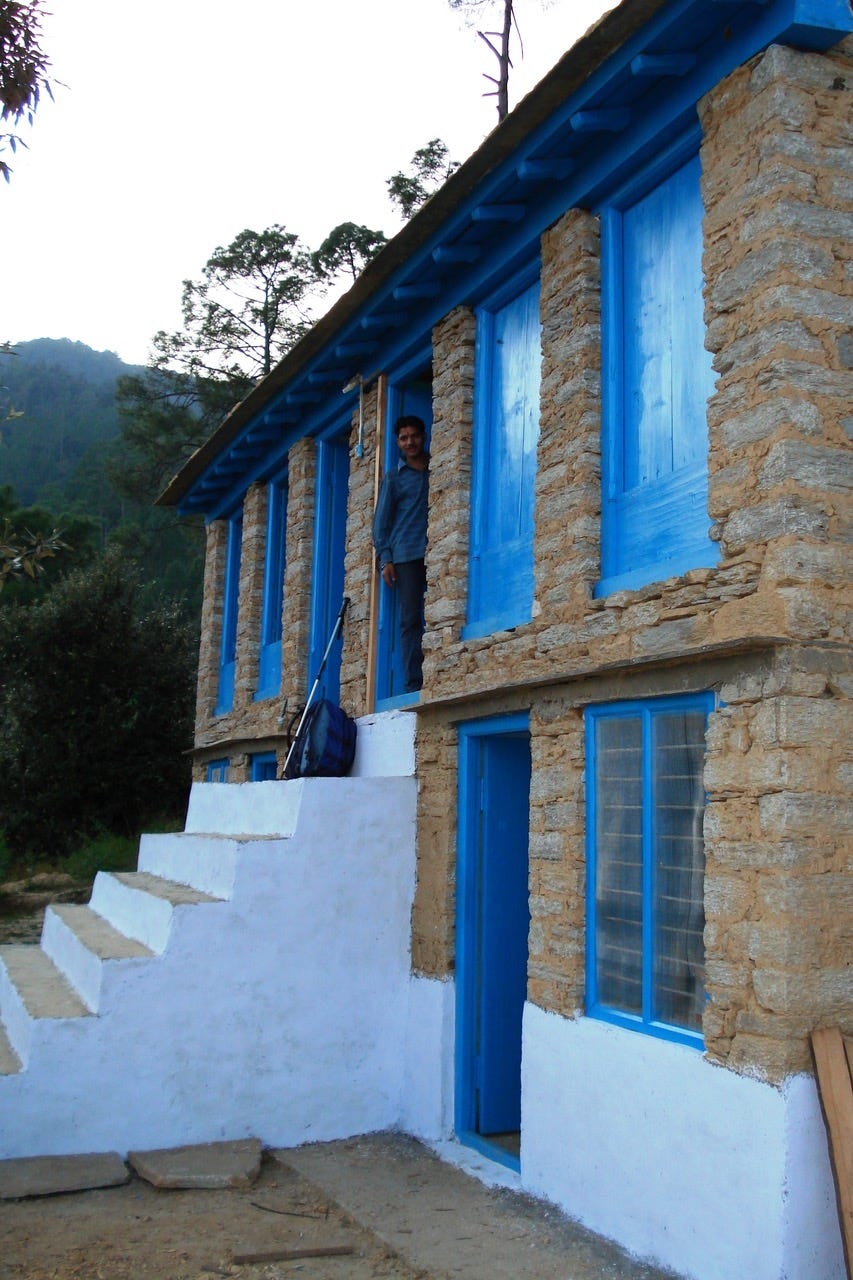
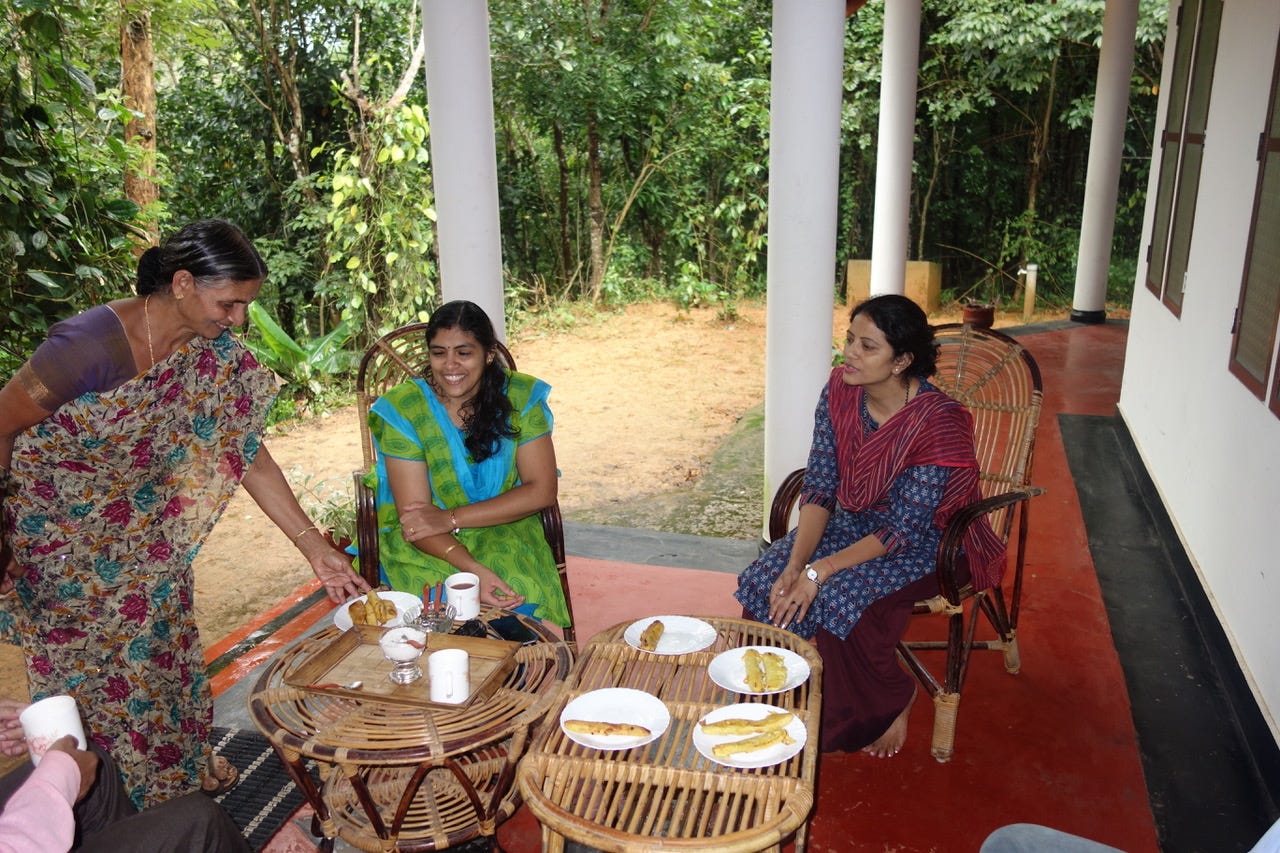
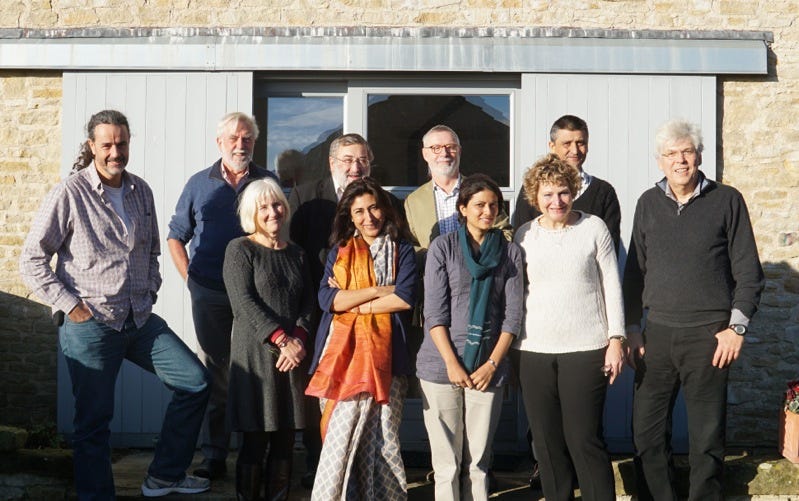
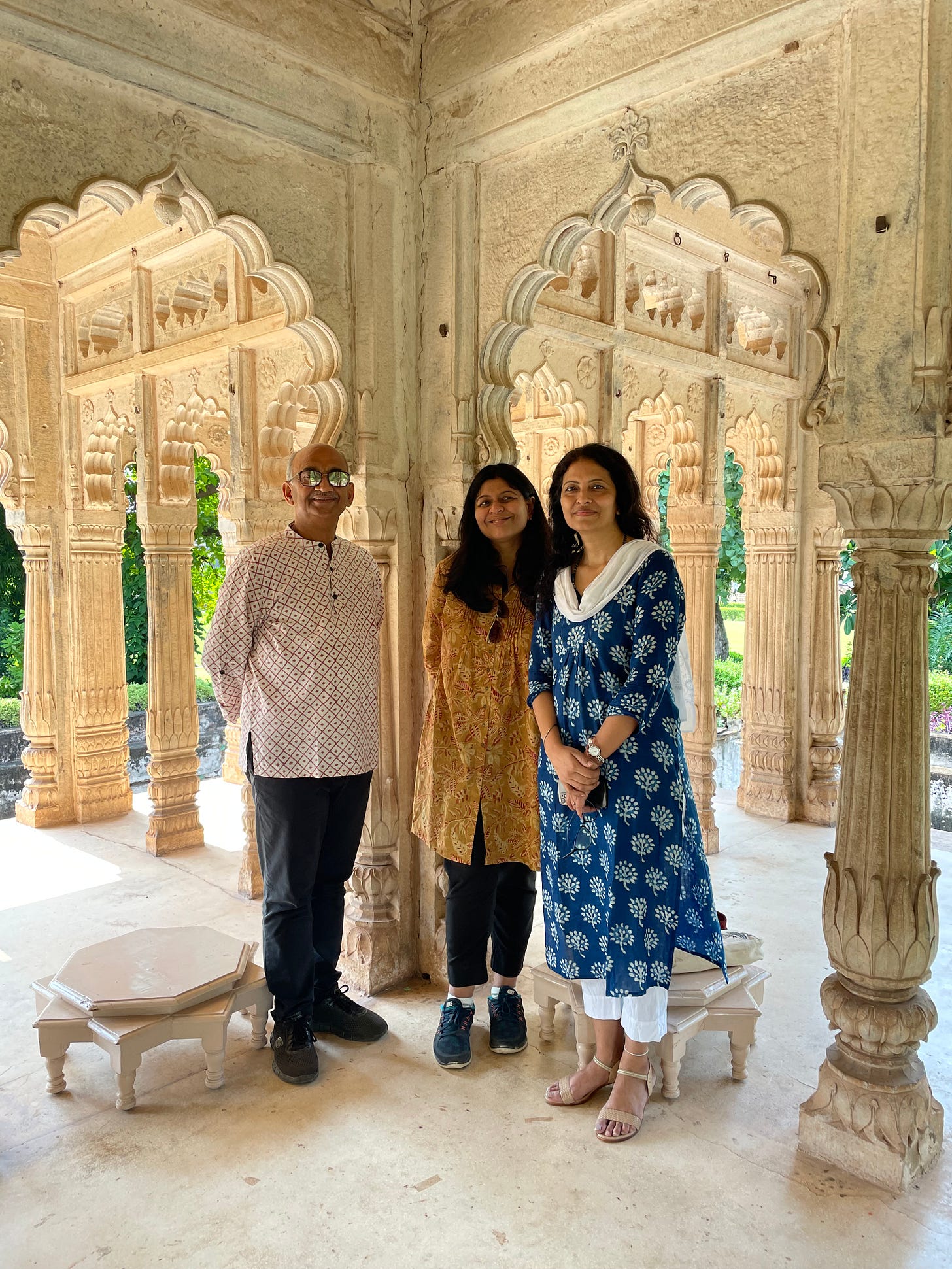
"Everyone comes back to the places where he or she loved life" - I had not heard of that as a Spanish saying before. It's incredibly true.
btw, Rita Mae Brown - wow - I haven't heard her name in decades! Read all her stuff back in the 80's!